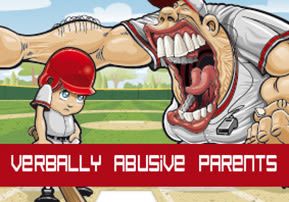
Verbally Abusive Parents
Why do so many parents verbally abuse and embarrass their children? Rabbi Lazer Brody elaborates on the five main reasons for this tragic behavior...

After years of seeing so many parents verbally abuse and embarrass their children, I noticed five main reasons for this unfortunate behavior:
1. The parent grew up in an abusive home where he was verbally abused, and became accustomed to such conduct.
2. The parent suffered from a low self-image, and wanted to feel better by stepping on the children.
3. The parent hadn’t received proper training on how to bring up children.
4. The parent harbored exceedingly high expectations from his children; when the expectations were not met, the parent had complaints against the child in a shame-inflicting manner.
5. The parent demanded a unified standard for all their children, ignoring the advice of King Solomon – to educate a child according to that child’s particular inclinations.
Let’s elaborate on each of the above points:
 First, a parent growing up in a verbally abusive home ends up repeating the vicious cycle with his own children.
First, a parent growing up in a verbally abusive home ends up repeating the vicious cycle with his own children.
There is no excuse to embarrass a son or a daughter; embarrassment transgresses a Torah prohibition. Rabbis and educators should intervene wherever parents systematically abuse their children. Many people think that in their own homes they can rule like Haman, and that everyone must bow to them and fulfill their every need in the blink of an eye. This is not the way of the righteous, who behave with humility, especially at home.
Children are created in the image of Hashem, so they should be respected in kind. The Shulchan Aruch (Code of Jewish Law) explains, “It is forbidden for a person to be too demanding of his children, or to be too exacting of his own honor from them, in order that he will not bring his children to stumble and sin. Rather a person should have mercy on them, and hide his eyes from their mistakes, for a parent who forgives slights to his honor, is also forgiven.”
Some parents believe they own the souls of their children, and have to right to embarrass, shame and hurt them; such treatment of children is not only terrible, but absolutely forbidden. Just as it is forbidden to shame any person, so too is it forbidden to shame or embarrass one’s children. Those who torment and humiliate their children will suffer the consequences.
Parents are granted the privilege to raise and teach their children, not to destroy them. The child belongs not to the parent but to Hashem, Who has entrusted parents with the task of building up the children.
Specifically, threats are a big mistake. If a parent wants to punish a child, he should do so immediately, and not threaten. Threats are cruel, for they leave a child with lingering fear and worry as to the bitterness that’s in store for him. That’s neither fair nor moral.
The rule is that it is forbidden to act cruelly with children in any way, shape, or form. Parents need to give a lot of love to children, for love is what builds them.
Parents who grew up in abusive homes and in turn abuse their children make a tragic mistake. Such a parent knows what it was like to suffer, so why would he want to perpetuate the same distorted “tradition,” causing his spouse and children to suffer? Such a parent should decide: “I suffered – and it is enough! My spouse and children will not suffer the way I did!”
How? If a person lacks patience, then he should talk to Hashem and ask Him to give him patience. If a person lacks the ability to give, then he should talk to Hashem and ask Him for the ability to give. This is the way to work and change, in order to terminate the cycle of abusive upbringing once and for all.
The second reason that parents verbally abuse their own children, because the parent may suffer from a low self-image and uses his children to bolster himself. A sensible person, however, knows that he need not lower anyone else; he simply must work on himself. Also, part of working on oneself is through uplifting others. Our Sages teach, “Who is respectable – he who respects others.” By uplifting others, one elevates himself as well. Greatness does not come at the expense of another human being.
The third reason is because the parent has not received proper training on how to bring up children. This article’s goal is to rectify this situation.
And the fourth reason is that a parent might harbor exceedingly high expectations from his children; when the expectations are not met, the parent has complaints against the child in a shame-inflicting manner.
“You’re a loser!”
“Are you an imbecile?”
“What will be with you?”
These are all unfortunately too-familiar abusive expressions. Every parent should think how he’d like it if Hashem treated him in the same manner.
Indeed, if a parent has expectations from a child, then it’s the parent’s responsibility to enable the child to meet those expectations. This is done through encouragement and reinforcement. “You achieved such and such, so you see you can do it! Continue to encourage yourself, and you’ll make it!” With parental encouragement and prayers on the child’s behalf, the child has a much greater chance of success.









Tell us what you think!
Thank you for your comment!
It will be published after approval by the Editor.